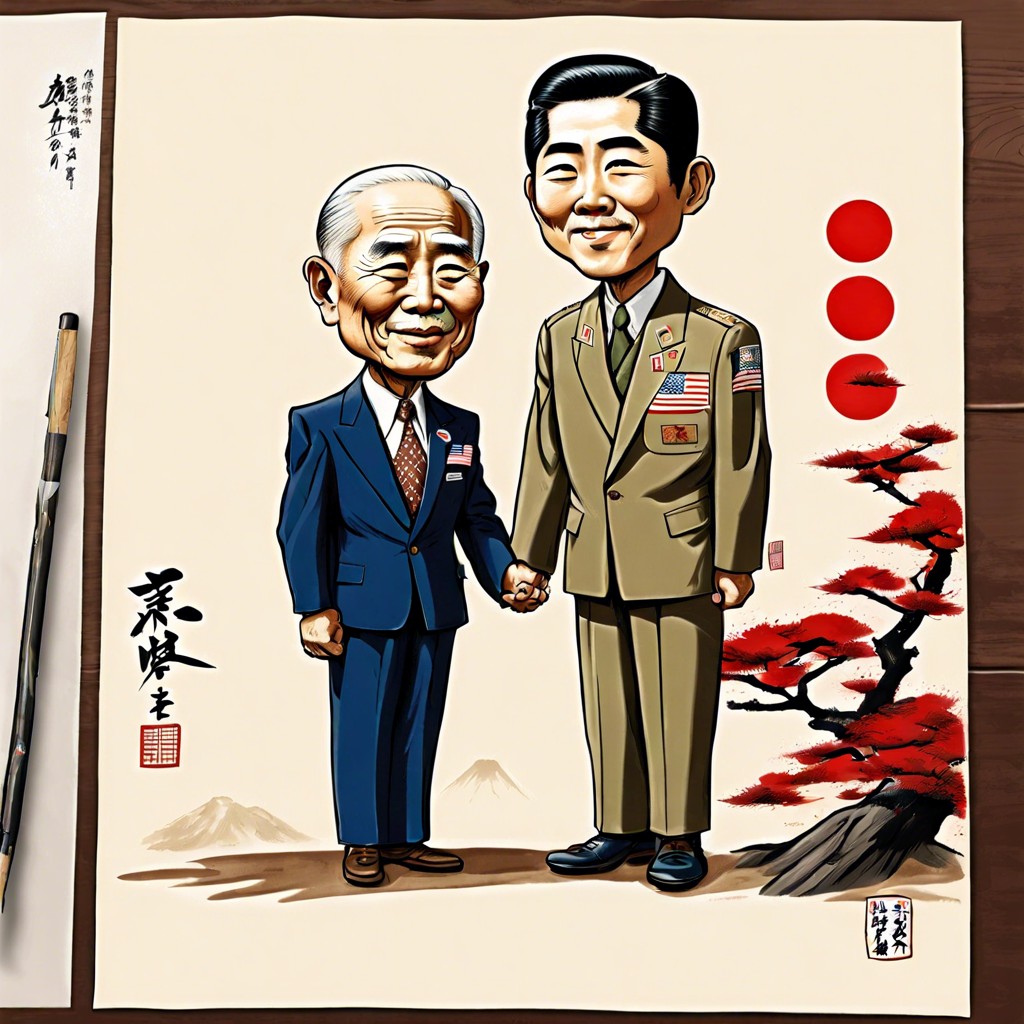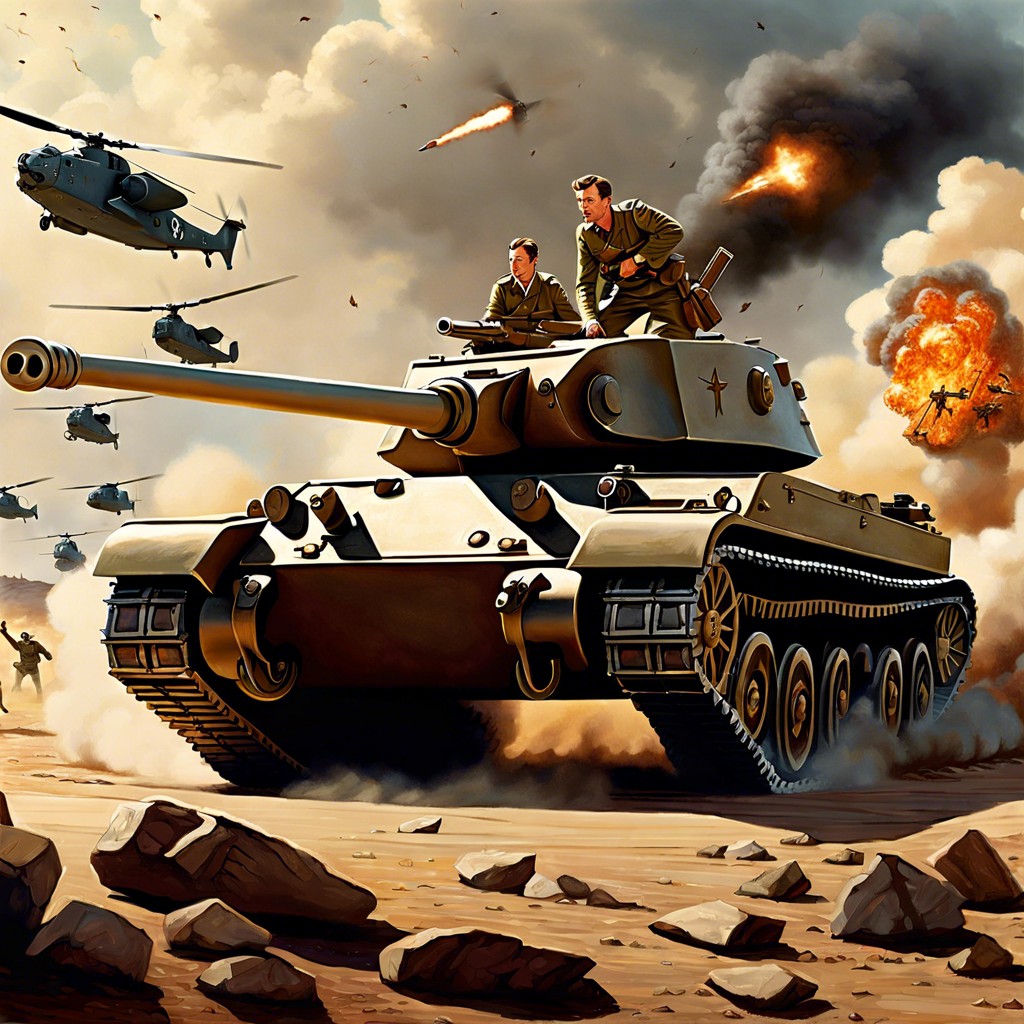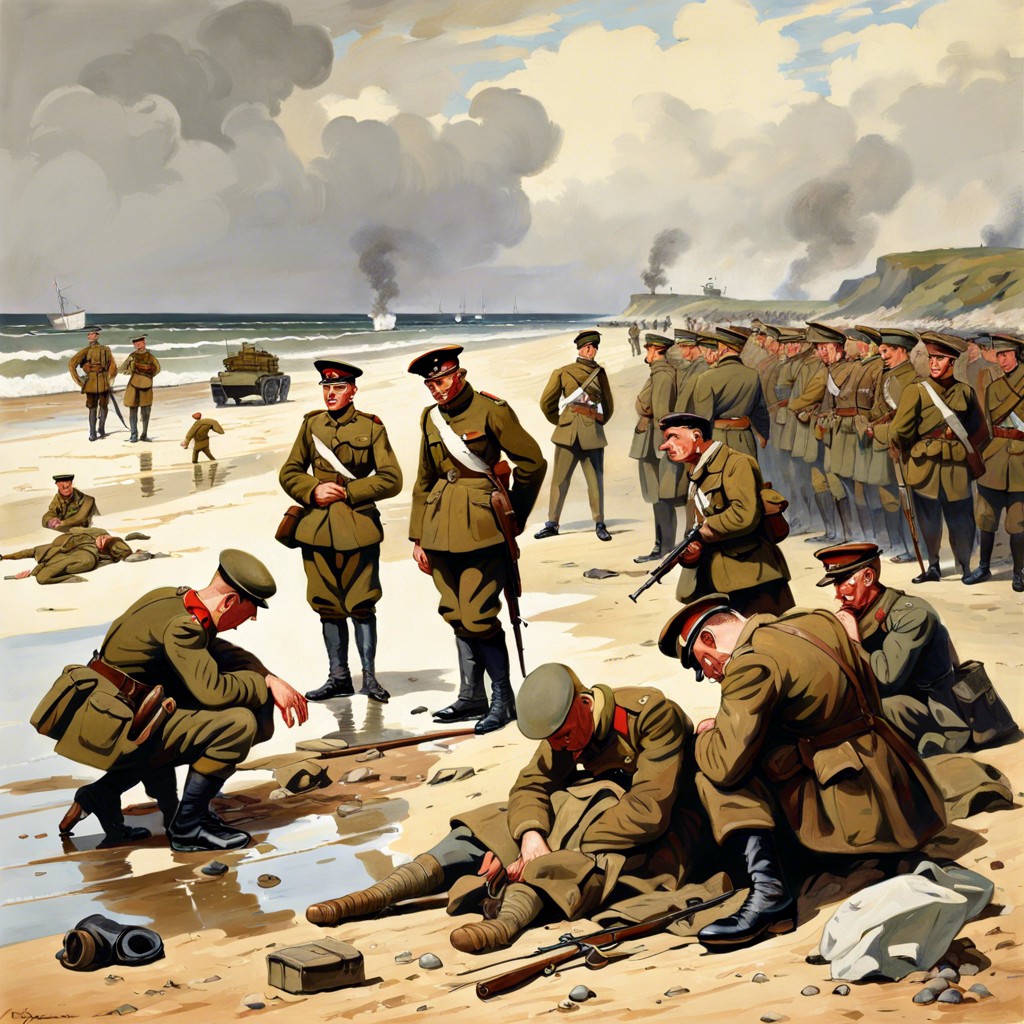Discover how the world might have changed if Japan hadn’t attacked Pearl Harbor and the potential ripple effects on history.
Imagine a world where December 7, 1941, passes quietly, and Japan never hurls its bombs at Pearl Harbor. What would be the ripple effects of this seismic non-event on U.S. involvement in World War II, economic ties, and global power dynamics? Dive into this mind-bending alternate history as we unravel how a single decision might have reshaped the 20th century, shifting the U.S.-Japan relationship, triggering different economic realities, recalibrating warfare strategies, and altering the geopolitical landscape forever. Ready for time-travel minus the DeLorean? Let’s go!
Key takeaways:
- U.S. might delay entry into World War II.
- U.S. and Japan relations shift diplomatically.
- Slower war economy, prolonged economic recovery.
- Global warfare dynamics shift dramatically without U.S. entry.
- Post-war geopolitical consequences reshape world order.
Alternate U.S. Entry Into World War II

America, apple pie, and isolationism. This trio was in full swing before Pearl Harbor. But without Japan’s brazen move, the U.S. might have been a slower joiner to World War II.
First, consider the political landscape. The U.S. was in a cozy, neutral stance, with President Roosevelt facing significant opposition to entering the fray. Convincing a post-Depression, war-weary public to support another global conflict? Not easy.
Economic interests would still push the U.S. closer to Europe. American businesses were already aiding Allied forces, and the Lend-Lease Act was in full swing. But without the Pearl Harbor wake-up call, Congress would have needed a stronger nudge.
Moreover, mounting pressures from Axis powers’ advancements would undoubtedly play a role. Imagine German U-boats harassing U.S. ships in the Atlantic. Such incidents could have eventually drawn America into battle.
Lastly, the timing would change. Instead of the immediate, dramatic entry post-Pearl Harbor, the U.S. might have waded in cautiously, only when the threat was undeniable. This could have altered both the tactics and the outcome of the war significantly.
Shift in U.S.-Japan Relations
Interestingly, without Pearl Harbor, it’s conceivable that the U.S. and Japan might have danced an awkward tango of diplomacy. Would they have stayed adversaries? Maybe. But the risk of a direct attack would have been significantly lower.
First, the U.S. focus could have stayed on Europe, keeping Japan as more of a distant concern rather than an imminent threat.
Second, trade relations would have had a chance to evolve. Instead of oil embargoes and economic sanctions, there might have been a convoluted negotiation marathon—think less “Rocky” and more “The Office” meeting scene.
Third, Japan’s imperial ambitions in Asia would likely still spark tensions, but without a visceral attack like Pearl Harbor, public opinion in the U.S. might have stayed lukewarm about full-scale war.
All this while both nations would have been suspiciously eyeing each other across the Pacific, like two cats deciding if a nap or a fight is the next best move.
Economic Effects On U.S. and Japan
Without the jarring impact of Pearl Harbor, the United States wouldn’t have immediately ramped up wartime production. Picture a factory making can openers instead of bombers. The transformation to a war economy would have been slower, potentially resulting in prolonged economic recovery from the Great Depression.
For Japan, avoiding the attack could have meant a prolonged period of strained, yet manageable, trade relations with the U.S. Think of a rocky marriage but without the messy divorce. Instead of immediate sanctions and embargoes, Japan might have continued to secure essential resources like oil albeit at higher costs. This delicate balance could have staved off desperate measures.
Interestingly, consumer goods might have seen a different path. Without the almost overnight switch to military manufacturing, everyday products like cars, appliances, and even fashion could have evolved differently. Imagine a 1940s with more styling cars but fewer military jeeps!
Lastly, let’s not forget the economic butterfly effect. The prolonged peace would change investment priorities, leading to different technological innovations and economic policies. The ripple effects from this alternate history could be as vast as they are unpredictable.
Impact On Global Warfare Dynamics
If the U.S. had not been provoked into joining World War II by an attack on Pearl Harbor, global warfare dynamics would have shifted dramatically. We might have seen a delayed or completely different U.S. entry into the conflict, potentially allowing the Axis Powers to gain more ground.
Germany and Italy could’ve focused more squarely on Europe without worrying about a strong American force in the mix. Imagine Britain holding the line with a lot less support. The Soviets would still be an enraged bear, but stretched thinner without the D-Day invasion to relieve pressure. The Pacific Theatre would be Japan’s playground for longer, wreaking havoc unchecked.
Even the development of nuclear weapons might have been delayed or taken a different path entirely. The Manhattan Project was a colossal push fueled by the urgency of the war. No Pearl Harbor, less urgency. Maybe Einstein stays an anonymous genius, and Oppenheimer spends more time in academia rather than the deserts of New Mexico.
The ripple effect? A very different post-war world, one where lines on the map might look unfamiliar and the world order as we know it could be restructured. Global alliances and enmities would take a different shape, one that’s hard to predict but fascinating to consider.
Long-term Geopolitical Consequences
Imagine a world where the U.S. never had a compelling reason to drop atomic bombs on Hiroshima and Nagasaki. The Cold War landscape might have been drastically different. Instead of an arms race defined by nuclear capabilities, the primary focus could have been on conventional military strength and espionage dramas like a James Bond film on steroids.
Post-war territorial arrangements would have shifted dramatically. The domino effect in Asia, leading to the Korean and Vietnam Wars, might have looked more like a row of toppling Jenga blocks—unpredictable and chaotic in their fall. Japan could have become a major counterbalance in Asia, possibly forming alliances that tilted the global power balance in unforeseen directions.
Lastly, the rise of U.S. influence in the post-war era might have been gentler. Without the surge of wartime production and economic growth, America’s position as a global powerhouse might not have been so pronounced. This would have left a vacuum that other countries could rush to fill, probably resulting in a very different international landscape today.




